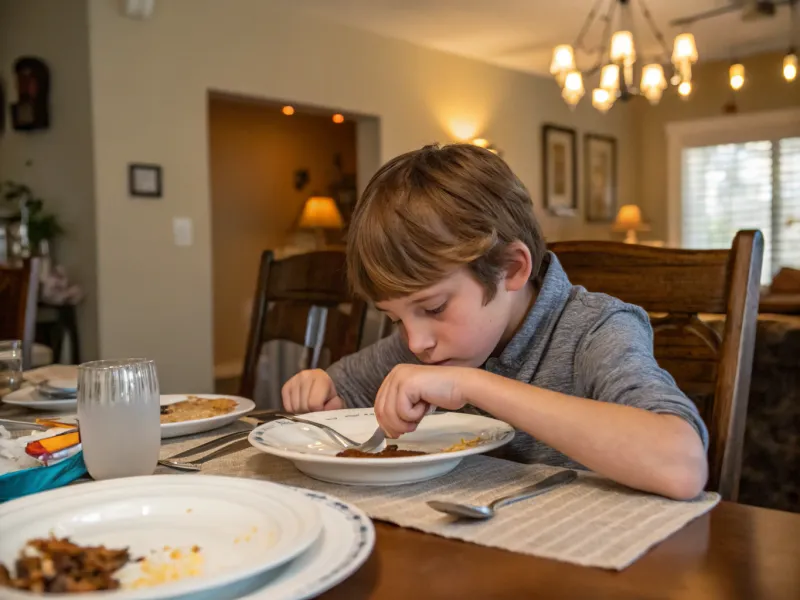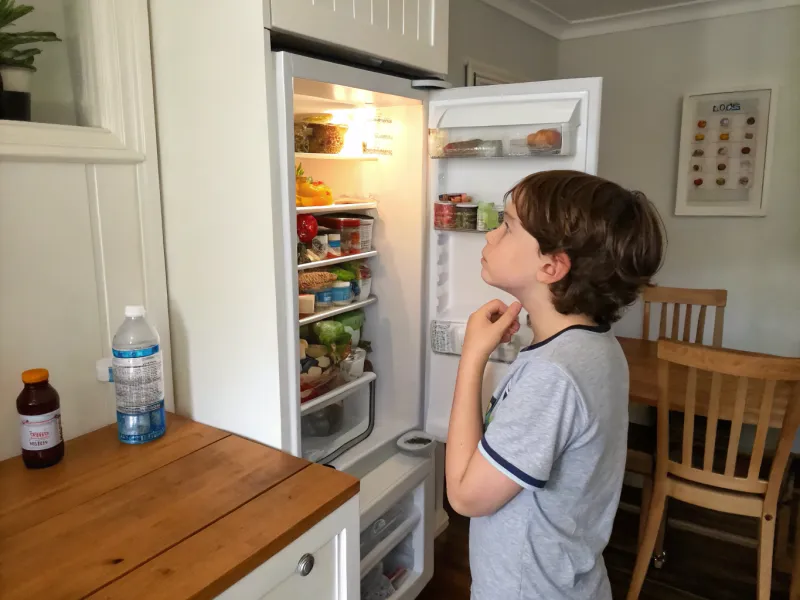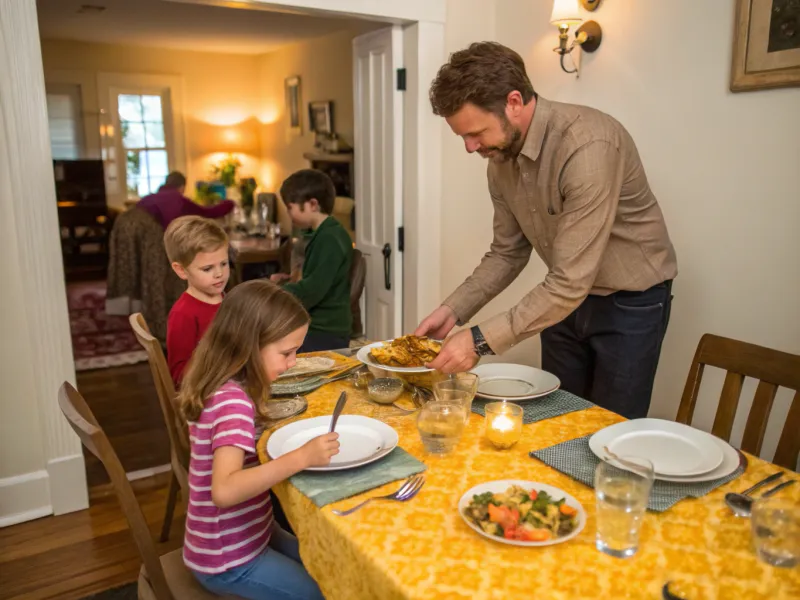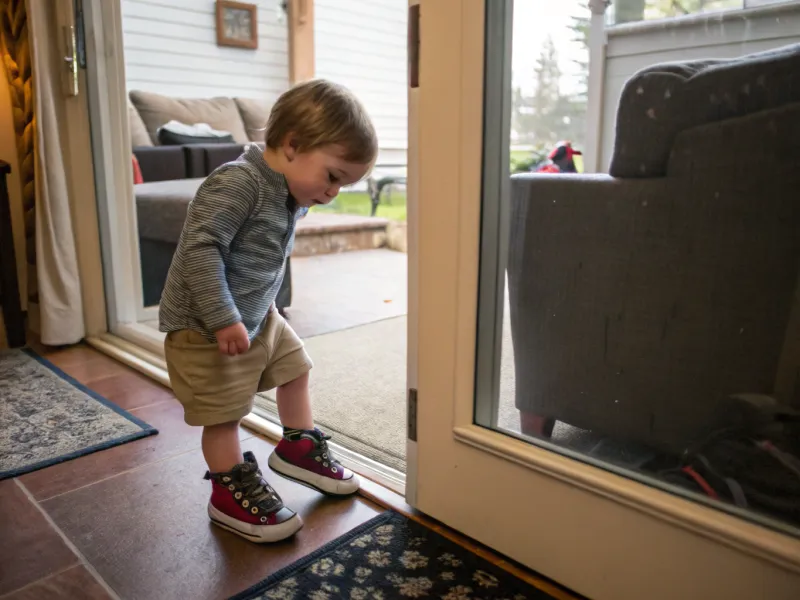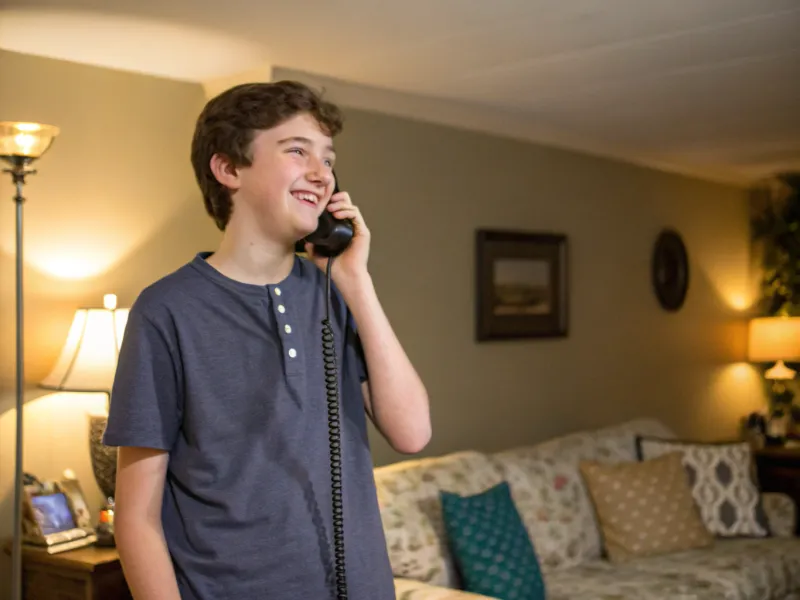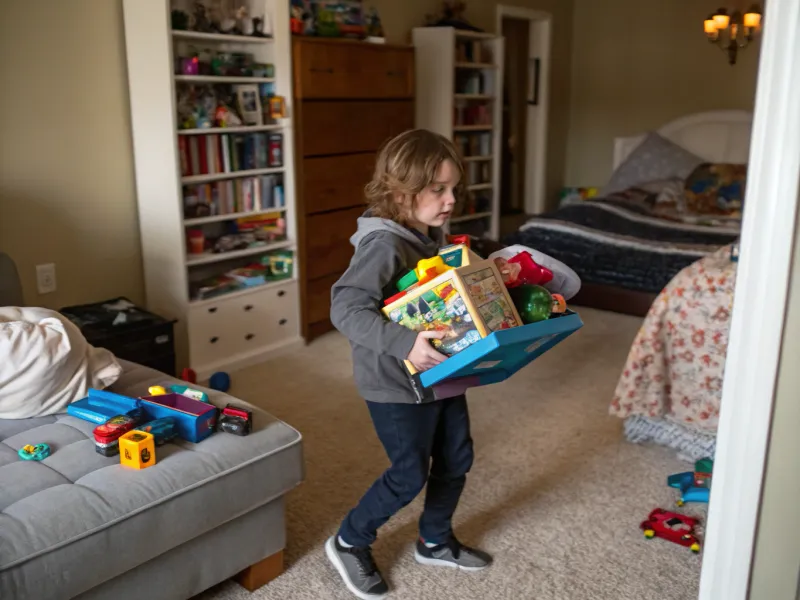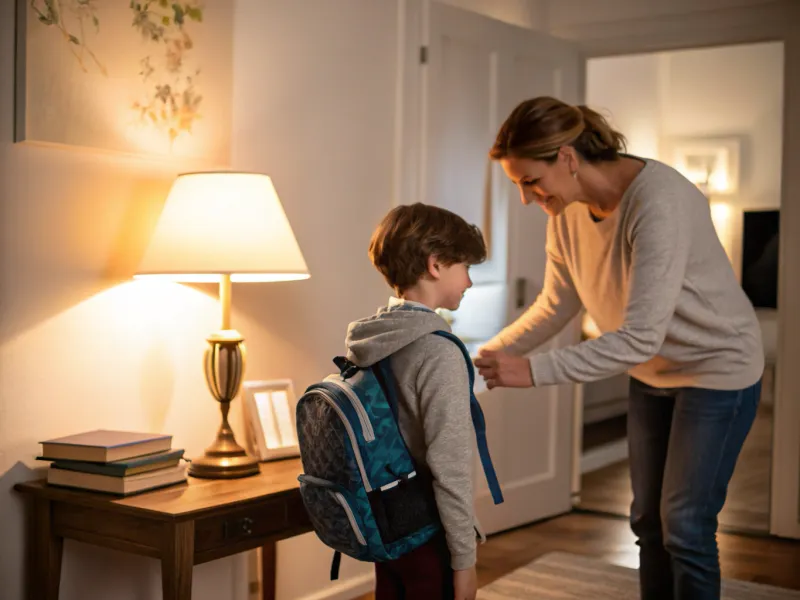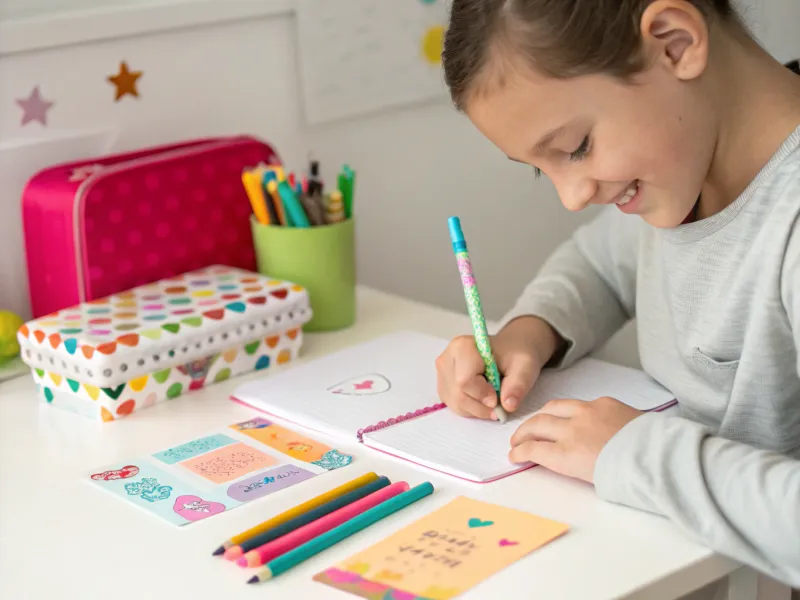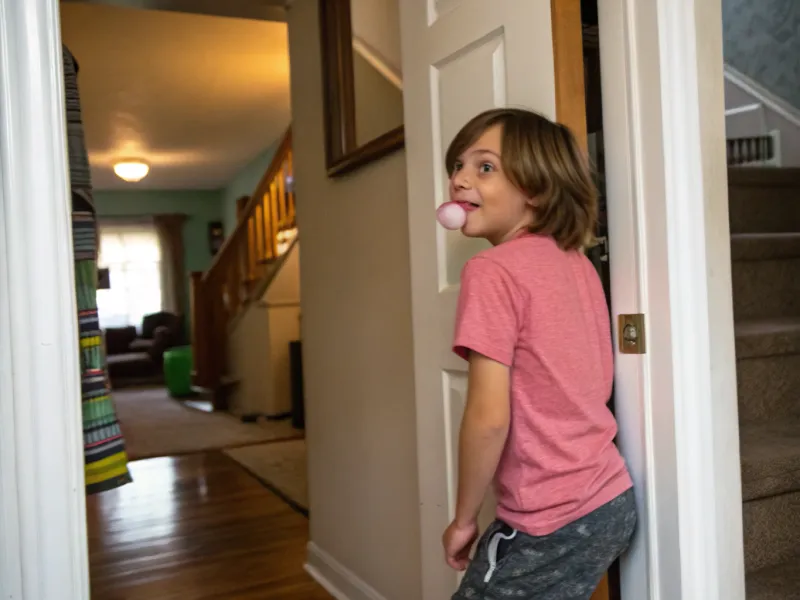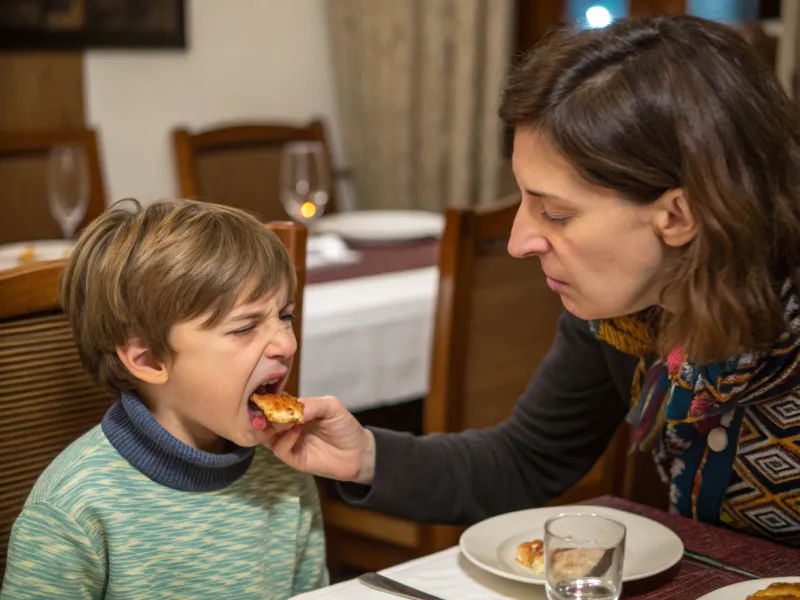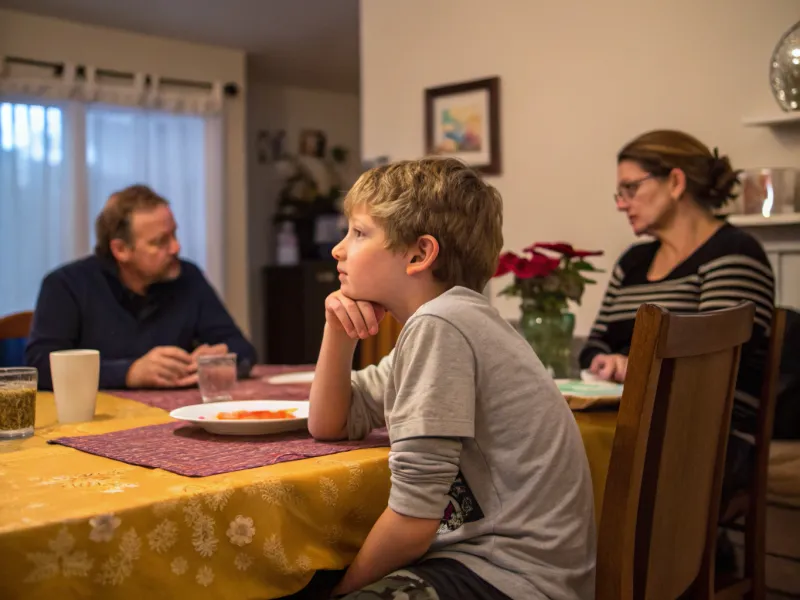No elbows on the table? No talking back? No opening the fridge just because you’re bored? Turns out, those weird childhood rules might’ve actually been life lessons in disguise. I mean, who would’ve thought that being told to always finish your plate was a sneaky lesson in gratitude and not wastefulness?
Join me on this nostalgic journey as we uncover thirty outlandishly odd parental mandates that, in hindsight, might have nudged us toward becoming the (semi) responsible adults we pretend to be today. Get ready to giggle, reminisce, and maybe even realize the genius behind the madness.
1. No Elbows on the Table
Remember the constant nagging about keeping your elbows off the table? Looking back, it seemed like a medieval punishment. But this rule was all about teaching etiquette and respect. Imagine an elegant dinner party; elbows on the table just wouldn’t cut it.
Our parents wanted us to have dining manners, preparing us for those fancy occasions we might encounter later on. In a world where first impressions matter, knowing how to handle yourself at the table can be a secret weapon.
While it seemed bizarre, the no-elbows rule instilled a sense of awareness and discipline. It was about making sure we were presentable and respectful in settings that required a bit of decorum.
Vedi anche: 30 Things Parents Of Resilient Kids Always Do According To The Child Development Experts
2. No Talking Back
Ah, the infamous ‘no talking back’ rule. As kids, it felt like a muzzle on our freedom of speech. Every time we dared to question or challenge, we were met with ‘Don’t talk back!’
In retrospect, this was a lesson in respect and patience. It taught us to listen first and then respond thoughtfully. Speaking with respect is a skill that has served us well in professional and personal relationships alike.
It was about understanding the value of words and the impact they have. While it felt restrictive, it ultimately shaped us into considerate communicators.
Vedi anche: 40 Phrases That Prove Your Parents Totally Nailed It Raising You
3. No Opening the Fridge Just Because You’re Bored
Who else remembers getting caught with the fridge open and a scolding about eating out of boredom? This rule seemed like the ultimate buzzkill during summer breaks.
But secretly, it was a lesson in self-control and decision-making. It taught us to differentiate between actual hunger and mere boredom-induced cravings.
Learning to ask ourselves if we were truly hungry or just looking for a distraction taught us awareness about our habits and impulses. Thanks, Mom and Dad, for saving us from unnecessary snacking and teaching us moderation.
4. Always Finish Your Plate
The dreaded rule of finishing everything on your plate—not negotiable, not even that last bite of broccoli. Back then, it felt like a gastronomic marathon.
Parents insisted we eat up, not wasting food, which seemed harsh. Yet, it instilled a sense of gratitude and awareness of resources.
Today, we recognize it was about understanding the value of food and appreciating what we have. We learned to be grateful and mindful, a lesson that stuck with us into adulthood.
5. No TV on School Nights
The agony of missing all the cool shows because of the dreaded ‘no TV on school nights’ rule. It was like living in a perpetual FOMO zone.
But this rule was all about prioritizing schoolwork and ensuring we got enough rest. In a way, it was about teaching time management and discipline.
Missing a few episodes was a small price to pay for a lesson in balancing responsibilities, something that pays off in adult life when juggling work, chores, and play.
6. No Leaving the House with Wet Hair
The bizarre no-leaving-with-wet-hair rule was a head-scratcher. Were our parents worried about us catching colds, or was it another hidden lesson?
This rule taught us about appearances and taking care of ourselves. It was about presenting ourselves well and being prepared for the day ahead.
Now, we understand it was about self-care and responsibility, ensuring we faced the world looking our best. Who knew it had such a layered meaning?
7. Always Greet Guests with a Full Meal
Remember the extravagance of serving a full meal to every guest stepping into the house? As a kid, it seemed over the top.
But this taught us hospitality and generosity. It was about making others feel welcome and valued, a gesture of kindness and respect.
Now, we see it was about building relationships and creating a warm, inviting home environment. Our parents knew the power of a shared meal in bringing people together.
8. No Dessert Until You Eat Your Vegetables
The cruelest rule for sweet-toothed kids: no dessert until those veggies were gone. It felt like a battle every meal time.
But this rule was about instilling healthy eating habits. Parents used it to ensure we got our nutrients before indulging in treats.
It taught us about balance and moderation, lessons that have helped us maintain a healthier lifestyle as adults. Thanks, parents, for sneaking in life lessons with those peas and carrots.
9. No Running in the House
The rule against running indoors seemed like a buzzkill. What better place to unleash endless energy than home?
Yet, it was about safety and learning self-control. Our parents wanted to keep us from getting hurt or breaking things.
This simple rule taught us to channel our energy wisely and respect our environment, which has been surprisingly useful in crowded spaces and delicate situations.
10. Bedtime at 9 PM Sharp
The unfairness of a strict 9 PM bedtime was the bane of many childhoods. It felt like being sentenced to an early night prison.
This rule was about ensuring we got enough rest for growth and learning the next day. It was a way of teaching the importance of sleep.
Looking back, we appreciate how it shaped our understanding of healthy routines, making us more disciplined about rest, even as adults.
11. No Shoes on the Carpet
The ‘no shoes on the carpet’ rule seemed peculiar, especially when friends walked in with sneakers. Was the carpet sacred?
It was about cleanliness and maintaining a tidy home. Our parents taught us to respect shared spaces and keep them clean.
Now, we see the practicality and courtesy behind it. This rule taught us to value cleanliness and consider how our actions affect our surroundings.
12. Politeness Over the Phone
The demand for perfect politeness when answering the phone felt a bit much. Why the fuss over a simple ‘hello’?
This rule was about communication skills and leaving a good impression. It taught us to be clear, respectful, and attentive listeners.
Turns out, this skill is invaluable in professional and personal interactions, setting the tone for effective communication throughout life.
13. No Playing with Food
The ‘no playing with food’ rule crushed many dreams of spaghetti art and potato mountains. It seemed so limiting.
Yet, it was about teaching respect for food and table manners. Our parents wanted us to appreciate meals and focus on eating.
Though it felt restrictive, it was a lesson in respect and gratitude, values that have stayed with us beyond the dinner table.
14. Always Knock Before Entering
The need to knock before entering a room seemed unnecessary at home. But this rule taught us to respect privacy and boundaries.
It was about recognizing personal space and showing consideration for others. This lesson in respect is crucial in all aspects of life.
We learned to approach situations with care, a valuable skill in maintaining healthy relationships.
15. No Toys in the Living Room
Keeping toys out of the living room felt like a harsh rule. Why not play where everyone gathers?
But this was about maintaining a tidy, shared space. It taught us to organize and respect communal areas.
We learned the importance of separation between play and relaxation spaces, a habit that keeps our homes orderly even today.
16. Homework Before Playtime
The ‘homework before play’ rule was the ultimate fun-blocker as a kid. Schoolwork seemed endless.
But in reality, it taught us about priorities and time management. Completing tasks before leisure became a valuable habit.
This rule instilled discipline and responsibility, skills that are crucial in adult life when balancing work and personal time.
17. Wash Your Hands Before Meals
The constant reminder to wash hands before eating seemed tedious. Why the obsession with cleanliness?
However, it was about instilling hygiene and care for our health. Our parents wanted to protect us from germs and illnesses.
Now, we value this simple but effective habit that keeps us healthy, showing the practical wisdom behind the rule.
18. Always Say Please and Thank You
The insistence on ‘please’ and ‘thank you’ felt endless. It was like having a politeness drill sergeant at home.
Yet, it taught us the power of politeness and gratitude. These words carry weight in building relationships.
We learned the importance of courteous communication, a small effort that makes a significant impact in social interactions.
19. No Pets on the Furniture
The rule against pets on furniture seemed like an attack on furry family members. Why not let them snuggle on the couch?
But it was about maintaining cleanliness and preserving furniture. It taught us responsibility in caring for both our pets and home.
This rule helped us understand boundaries and respect for shared spaces, valuable lessons in home management.
20. Don’t Leave the Lights On
The constant reminder to turn off lights felt like a never-ending scolding. Who cared about a little extra brightness?
But this rule was about teaching energy conservation and responsibility. Our parents wanted us to consider resources and costs.
Now, we appreciate the lesson in environmental awareness and frugality, values that contribute to sustainable living.
21. No Feet on the Coffee Table
The rule against feet on the coffee table seemed overly strict. Was it really that big of a deal?
It was about showing respect for shared spaces and maintaining a tidy household. Parents wanted us to value the home’s ambiance.
We learned to be mindful of shared environments, a habit that fosters respect and harmony in communal living.
22. Always Write Thank You Notes
The ritual of writing thank you notes for every gift felt like a chore. Why not just say thanks?
But this taught us about gratitude and appreciation. Taking the time to acknowledge someone’s gesture is meaningful.
It instilled a sense of gratitude and effort, values that enhance relationships and show genuine appreciation.
23. Clean Your Room Every Saturday
The dreaded Saturday room-cleaning rule was a weekend thief. Who wanted to waste precious playtime tidying up?
But it was about responsibility and maintaining personal spaces. Our parents aimed to instill organizational skills and pride in our surroundings.
This habit taught us discipline and cleanliness, qualities that benefit us in managing our adult homes.
24. No Chewing Gum in the House
The ban on chewing gum at home felt like an unnecessary restriction. It was just gum, right?
Yet, it was about preventing messes and maintaining cleanliness. Parents wanted to avoid sticky situations and damage.
We learned to respect restrictions that protected the home, a lesson in responsibility and foresight.
25. Don’t Talk with Your Mouth Full
The rule against talking with your mouth full was a constant reminder. Did it really matter?
But this was about teaching table manners and respect for others. It ensured conversations at the table were pleasant.
We learned the importance of etiquette and consideration, values that enhance social interactions throughout life.
26. No Jumping on the Bed
The no-jumping-on-the-bed rule was a fun killer. Who didn’t love bouncing around?
But this was about safety and care for furniture. Parents wanted to prevent injuries and damage.
We learned to channel energy in safe ways and respect our belongings, lessons that extend to managing our homes.
27. Always Help with Chores on Sundays
The mandatory Sunday chores felt like a weekend stealer. Why not relax all day?
Yet, it was about teaching responsibility and teamwork. Helping with chores taught us to contribute to the household.
This rule instilled a sense of duty and cooperation, skills essential for thriving in any community or family environment.
28. Eat Breakfast Every Morning
The insistence on eating breakfast felt annoying. Why start the day with a full stomach?
But it was about health and energy. Parents knew breakfast was essential for focus and growth.
This rule taught us the importance of nutrition, setting a foundation for healthy eating habits that we carry into adulthood.
29. No Interrupting When Others are Speaking
The don’t-interrupt rule was a never-ending lecture. Why couldn’t we just jump in?
But it was about respect and consideration. Listening taught us patience and the value of others’ perspectives.
We learned to communicate effectively, a skill that enhances personal and professional relationships, proving our parents’ wisdom.
30. No Whistling Indoors After 6 PM
Whistling indoors after 6 PM was a no-go in some households, believed to invite misfortune or disrupt evening peace. Imagine a cozy living room where clocks tick past six, and any tunes had to be hummed quietly instead. Some parents insisted on this odd rule to foster mindfulness about noise and time.
By limiting whistling, children learned to respect the evening’s tranquility, perhaps encouraging quiet reflection or family bonding time. This quirky rule might have also promoted creativity, as kids found other ways to entertain themselves. So, while it seemed strange, it subtly taught respect for shared spaces and moments.


